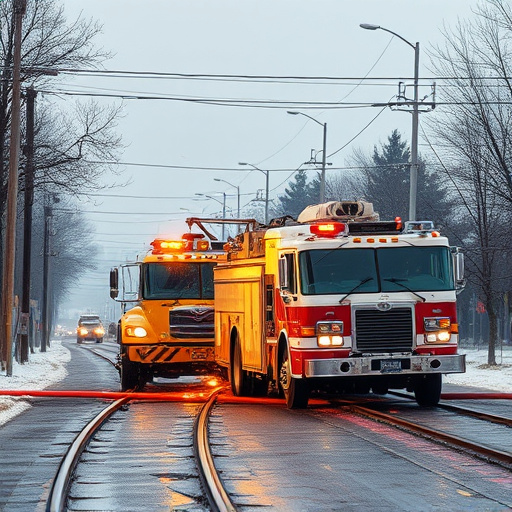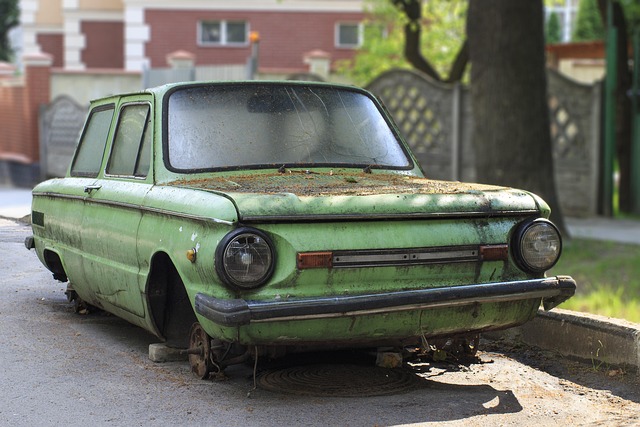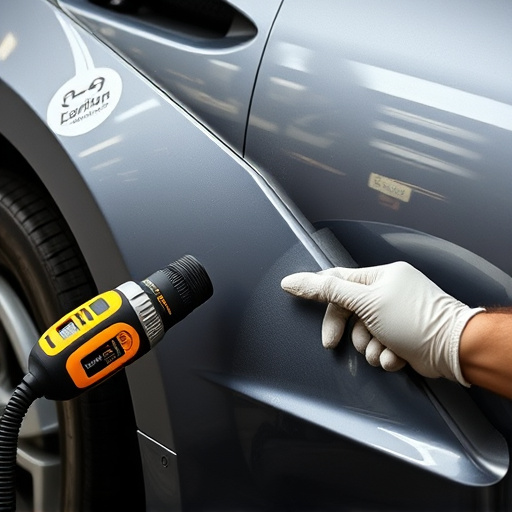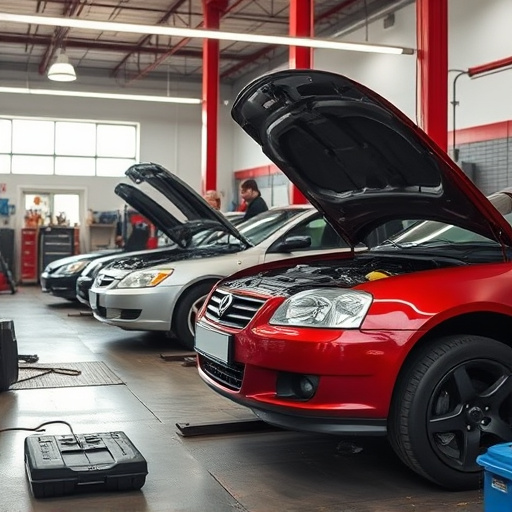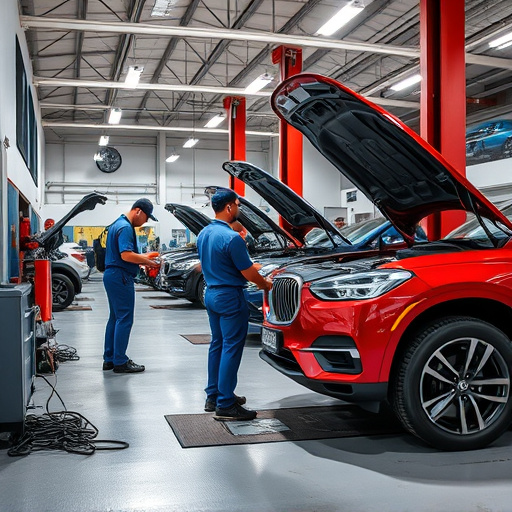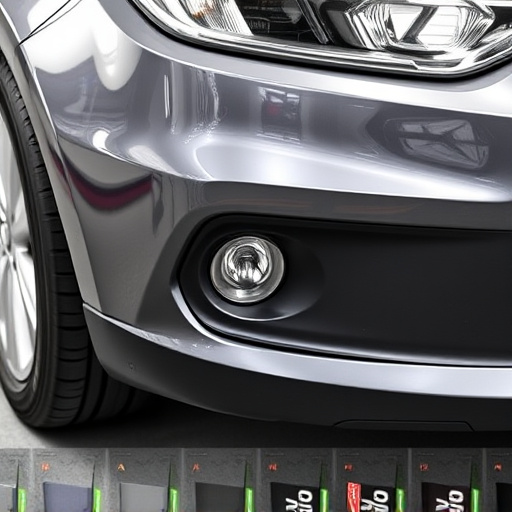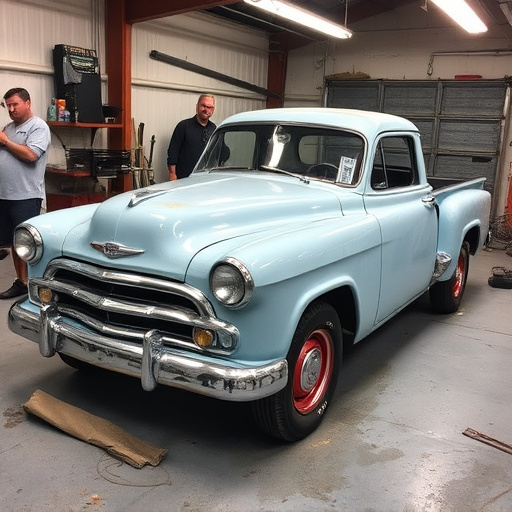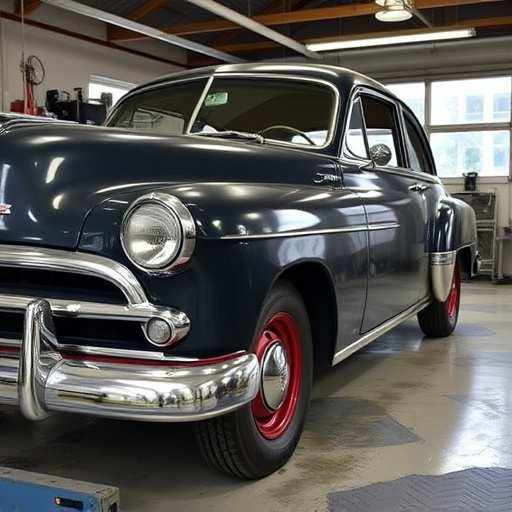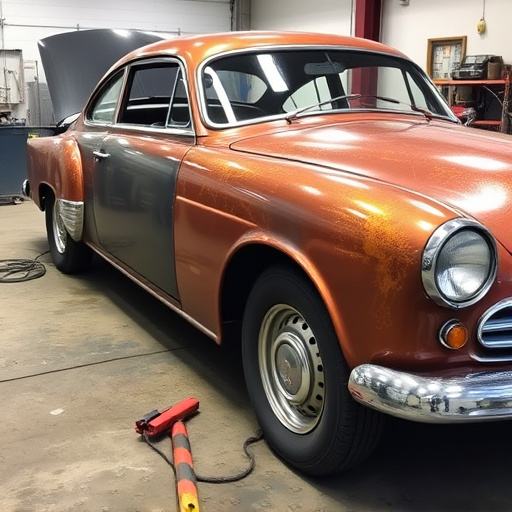Structural adhesive techniques offer significant advantages in various industries, especially automotive repairs and classic car restoration. They provide strong, long-lasting bonds comparable to or stronger than welds, enabling precision tasks like fender repair and paintless dent repair. These adhesives are versatile, bonding diverse materials without specialized preparation, preserving original aesthetics. Compared to traditional welding methods, structural adhesives are more efficient and cost-effective. Beyond autos, they're crucial in manufacturing for intricate component assembly and repair, revolutionizing material bonding across industries.
In an era demanding lightweight, durable structures across diverse industries, structural adhesive techniques offer a compelling alternative to traditional welding. This article explores the advantages of adhesives over welds, highlighting their versatility in bonding various materials and superior strength. We’ll delve into how these techniques enhance durability while providing a more efficient, cost-effective solution for modern manufacturing needs. Discover why structural adhesives are revolutionizing design possibilities.
- Advantages of Structural Adhesives Over Welding
- Versatility and Applications in Various Industries
- Improved Bonding Strength and Durability Compared to Welds
Advantages of Structural Adhesives Over Welding
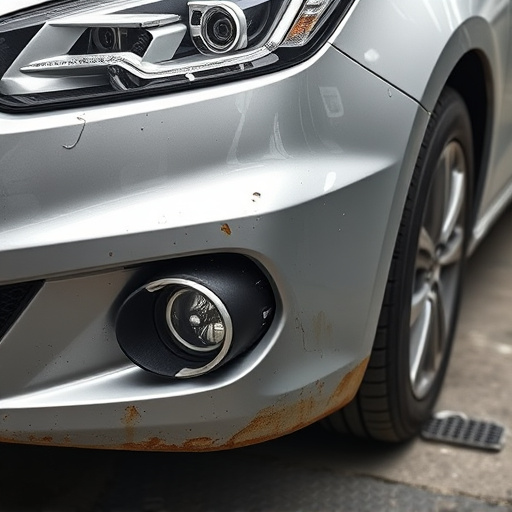
Structural adhesive techniques offer numerous advantages over traditional welding methods in various industries, including automotive repairs and classic car restoration projects. One of the key benefits is their ability to provide strong, long-lasting bonds that can rival or even surpass the strength of welded joints. This makes structural adhesives particularly valuable for tasks such as fender repair or paintless dent repair, where precision and minimal damage are essential.
Additionally, adhesives offer greater versatility in terms of material compatibility. They can bind a wide range of substrates, including metal, plastic, glass, and composite materials, without the need for specific preparation or surface treatment. This advantage is particularly evident in classic car restoration, where maintaining the original aesthetics while repairing damage is paramount. Adhesives also eliminate the need for heavy equipment or complex welding processes, making them more efficient and cost-effective solutions for many applications.
Versatility and Applications in Various Industries

Structural adhesive techniques offer unparalleled versatility, making them indispensable across numerous industries. From automotive to aerospace and construction, this versatile bonding method has found its place in various applications. In vehicle repair services, for instance, structural adhesives are increasingly preferred over traditional welding, especially in intricate mercedes benz repair processes. Their ability to bond a wide range of materials, including metals, composites, and plastics, makes them ideal for modern auto body services that require precise and durable repairs.
Beyond the automotive sector, structural adhesives play a crucial role in manufacturing, enabling efficient assembly and repair of complex components. In industries like electronics and machinery, these techniques ensure robust connections while minimizing disruption to delicate internal structures. This adaptability has significantly impacted how we approach vehicle repair, mercedes benz repair, and auto body services, pushing the boundaries of what’s possible in material bonding.
Improved Bonding Strength and Durability Compared to Welds
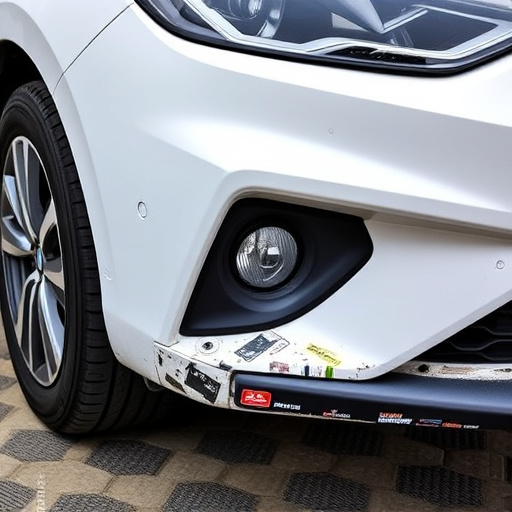
When comparing structural adhesive techniques to traditional welding methods, one significant advantage lies in the superior bonding strength and durability they offer. Adhesives provide a strong bond that can often outperform welds in terms of long-term reliability and resistance to stress. This is particularly beneficial in various industries where vehicles, such as those requiring auto repair services or vehicle dent repair, need to withstand rigorous conditions.
Unlike welds, which might experience fatigue or degradation over time, especially in complex structures, structural adhesives can create a seamless bond that maintains its integrity. This property makes them ideal for intricate vehicle restoration projects, ensuring the final product is as robust as new. The strength of these adhesives also translates to lighter components, which can enhance fuel efficiency and overall vehicle performance.
Structural adhesives offer a compelling alternative to welding, providing numerous advantages across various industries. Their versatility, superior bonding strength, and durability make them an increasingly popular choice for modern manufacturing and repair processes. By adopting structural adhesive techniques, businesses can streamline operations, reduce material waste, and create more robust, long-lasting products.
